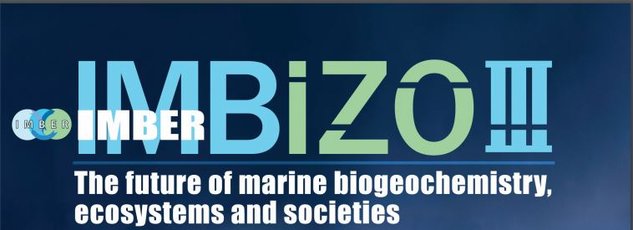
IMBIZO III – The future of marine biogeochemistry, ecosystems and societies
Time: 2013.01.28 – 2013.01.31
Location: Goa, India
Multi-dimensional approaches to the challenges of global change in continental margins and open ocean systems
Summary
Marine ecosystems are essential to life as we know it on this planet, yet the oceans are undergoing fundamental change. More than 20% of the global population resides within 100km of the coast, leading to increasing pressure on the ecosystems in continental margins; more than 90% of natural and farmed fish production is supported by the continental margin ecosystems, thus serving as an important food source. Meanwhile, global change has added a new set of threats, such as increased acidification and warming of the oceans. Humans are both a driver and a recipient of this change and it has become increasingly critical to understand, at multiple scales from the local to the global, how biogeochemical cycles, ecosystems, societies, governments and people, might respond to these changes and threats. The objective of IMBIZO lll was to explore the linkages and interactions between humans and marine systems to create understanding of the possible futures of the interrelated ecological and biogeochemical systems in the continental margins and in the open ocean and their societal implications.
Meeting format
We followed the proven IMBIZO format of three concurrent but interacting workshops, and joint plenary and poster sessions. This provided a forum for stimulating discussion between interdisciplinary experts and also linkages between biogeochemistry, ecosystem and social science research. To facilitate effective discussion, each workshop was limited to 40 participants. The participants, came from communities with active interests in the topics, chosen to provide balance in scientific disciplines as well as geographic distribution.
Workshops
Each of the three workshops included oral and poster presentations to showcase the current state of knowledge in each area and discussion sessions to identify key questions to be addressed by IMBER. The themes of the three workshops were:
- Biogeochemistry-ecosystem interactions on changing continental margins
- The impact of anthropogenic perturbations on open ocean carbon sequestration via the dissolved and particulate phases of the biological carbon pump
- Understanding and forecasting human-ocean-human interactions, drivers and pressures, with respect to global change
To facilitate integration between the workshops, daily plenary discussions focused on three overarching questions:
- How do biogeochemistry and ecosystems interact in response to natural or human-induced forcing in continental margins and how can such knowledge forge better management of the margins? Workshop programme
- How may current understanding of open ocean processes translate to better assessment and stewardship of fundamental ecological services that deep oceans provide? Workshop programme
- How can natural and social scientists optimize their cooperation to achieve usable and integrated knowledge and understanding to support policy making and form viable feedback loops between natural systems and human society? Workshop programme
More information
Flyer
Click here to download the Imbizo III flyer.
